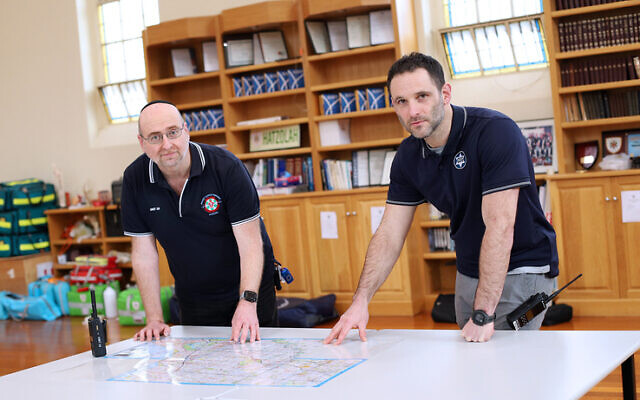‘COVID-19 is not over’
Community Security Group: 'We want to make sure the message is continuously out there of how important it is to obey the rules that have been put in place, not become complacent'.

WITH a resurgence of coronavirus infections in Victoria, and 10 Melbourne postcodes back in lockdown, the Victorian Jewish Community COVID-19 Taskforce has issued an urgent warning about complacency.
In an interview with The AJN, the heads of two partner organisations in the taskforce have urged Jews in the state not to succumb to “community fatigue”, as people in 36 northern and western suburbs were told not to leave home except for food shopping, medical care or caregiving, work or school, and exercise until at least July 29.
Justin Kagan, CEO of the Community Security Group (CSG) and Leon Landau, general manager of first-response organisation Hatzolah, said that after two weeks of consecutive double-digit daily increases in infections, it is now paramount that people do not give in to frustration and indulge in high-risk behaviour.
“The last thing we want is for Caulfield and the Glen Eira Council area to fall into that as well,” Kagan said of the metropolitan lockdowns. “We want to make sure the message is continuously out there of how important it is to obey the rules that have been put in place, not become complacent.
“We all have a role to play. We know it’s hard, but we must continue to keep social distancing, coughing and sneezing into your elbow, practising good hand hygiene. If you’re sick, get tested, even if it’s the mildest of symptoms,” he said.
With infections now increasingly spread by community transmission, Kagan said the northern suburbs lockdowns “could have just as easily been the Jewish community”.
If community transmissions had spiked that way in the inner south-east, “it could have been one of our seders a couple of months ago”.
Kagan said in his discussions with Victoria Police on Tuesday no issues were raised about any further violations by a small Satmar group that violated COVID-19 guidelines by holding services earlier this year.
Landau, meanwhile, warned people not to become complacent about contracting COVID-19. “They’re saying, ‘It’s going to be just like a cold, let’s just get it.’ They’re really forgetting that tens of thousands of people are dying overseas.”
He said Hatzolah responders assume each call-out could be a COVID carrier, and they wear fully protective gear to prevent spreading it to their own families or having to self-isolate, depleting Hatzolah’s human resources.
Landau urged people not to “look for the loopholes” in the guidelines. “Being allowed to have five guests at your house doesn’t mean you have to have five guests every five minutes,” he advised. “If you’re having a meal and you’re passing a salt shaker, a fork or a knife … the potential for transmission is incredible.
“People lose sight because we’ve been allowed to move back into more normal interaction,” he said, noting it is easy to slide back into familiar behaviour with “a hug, a handshake”.
Asked about prospects for shule services for this year’s High Holy Days, Kagan and Landau said it is too early to predict. As for regular synagogue attendance, they advised congregants to heed their shule’s guidelines and for people over 65 to consider whether a shule visit is absolutely necessary.
Kagan advised all communal organisations to adopt a COVID management plan. And he urged people who feel overwhelmed by the crisis to seek counselling assistance through Jewish Care. “This is not over. We’ve got a long, long way to go.”
To formulate your organisation’s COVID-19 management plan, visit vic.thecsg.org.au/covid-19-community-information/covid-19-downloadable-resources. Community leaders can contact covid19@csgvic.com.au. For personal counselling, contact Jewish Care on (03) 8517 5555.

comments